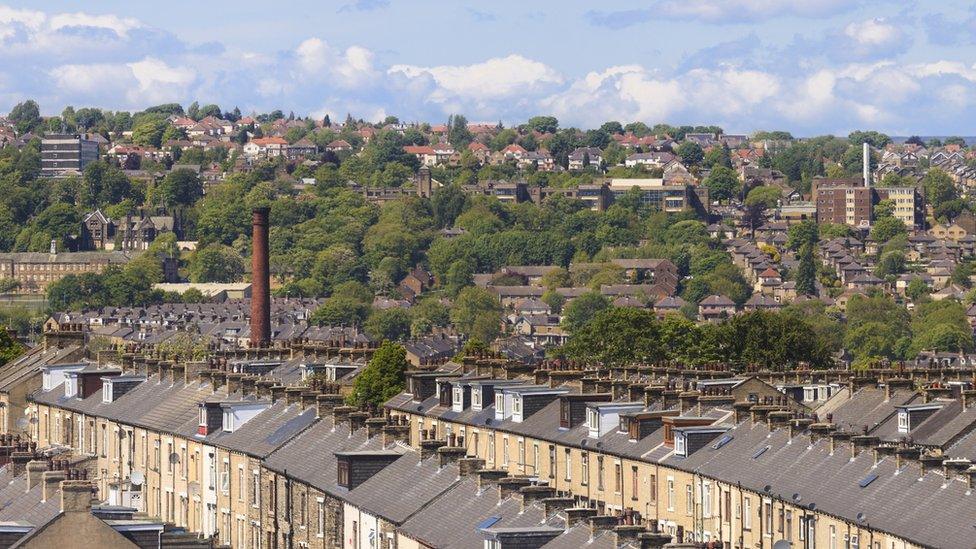Coronavirus: Calderdale council sets up own track and trace system
- Published
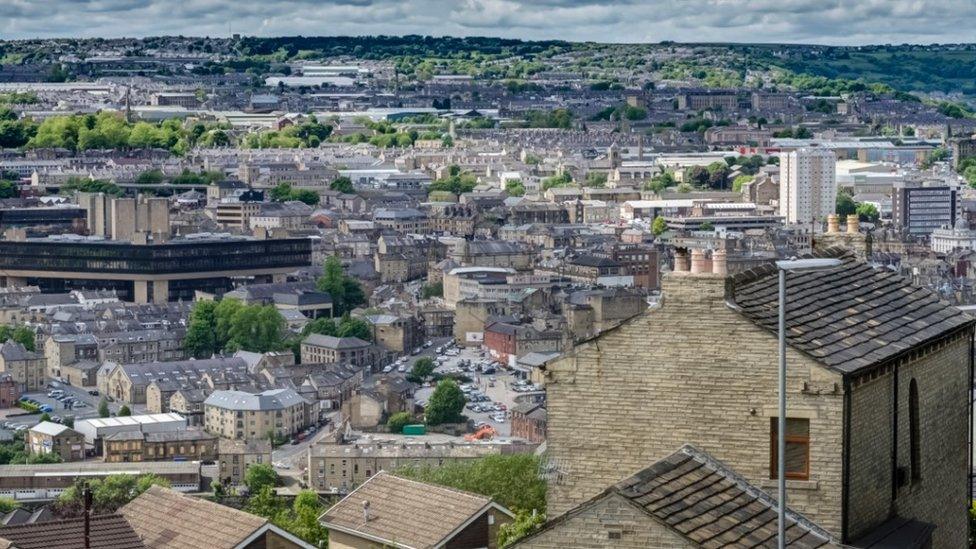
There has been a spike in coronavirus cases in Calderdale which has led to a local lockdown
One of the areas subject to a local coronavirus lockdown is set to benefit from its own track and trace system.
Calderdale council acted after the area saw a large increase in the number of Covid-19 cases in the last week, with the R-infection number going above one.
Council leader Tim Swift said contact tracers would speak to people in person rather than just over the telephone.
Meanwhile, new local lockdown laws will be hard to enforce, say West Yorkshire Police Federation.
Those breaking the laws now face fines ranging from £100 up to £3,200.
They can now be issued to people from different households meeting in a private home or garden.
They also ban members of two different households from mixing in pubs and restaurants.

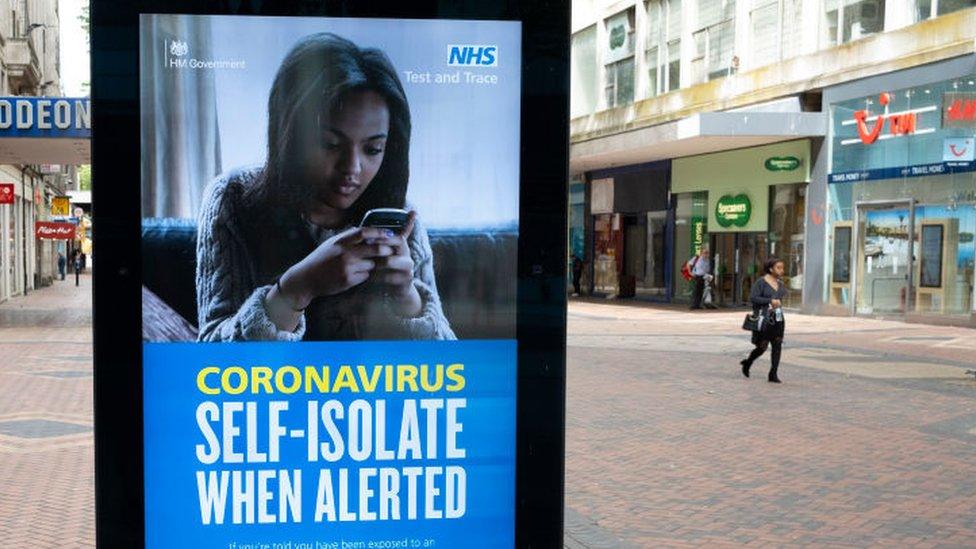

You might have missed the phone ringing or you might have thought it was a sales call - the problem is you can't call them back.
And at the moment that's all the national service can do - try calling you every 2 hours and leave messages.
With this new system you now might get a knock on the door from the council.
Bradford, Kirklees and Calderdale want to launch their own services that bring the information to the doorstep.
Some local MPs want restrictions to only apply to certain postcodes.
But councils involved think that would end up being even more difficult to explain to people than the regulations as they stand.
The new rules have got to be reviewed by the 19 August.

The new restrictions were announced, external following a spike in cases of Covid-19 in Bradford, Calderdale and Kirklees as well as in Greater Manchester and east Lancashire.
Brian Booth, chairman of the federation, said: "You've got many people abiding by the rules and then others just tired of the restrictions and that makes it very difficult for police officers."
Mark Burns-Williamson, West Yorkshire Police and Crime Commissioner, said police would be deployed where necessary but urged individuals and communities to "take their own responsibility" in following rules.
Mr Swift said that in Calderdale new cases were being seen among frontline workers, private hire drivers and those living in multiple households.
He said the local contact tracing system would be in place next week and would "plug the gaps" of the national scheme.
"The national service struggles where people don't find it easy to comply, where they're working with households with several people in and often working with people where English isn't the first language."
On Tuesday another of the affected authorities, Blackburn with Darwen, established its own model after its public health director said the national system was "simply not tracing enough cases and contacts fast enough."
Bradford Council said it was important to have a track and trace system in place there and a proposal was being considered by government.
In Kirklees, the authority said it would look at how the system worked in "pilot areas" and then "assess the benefits of establishing our own".
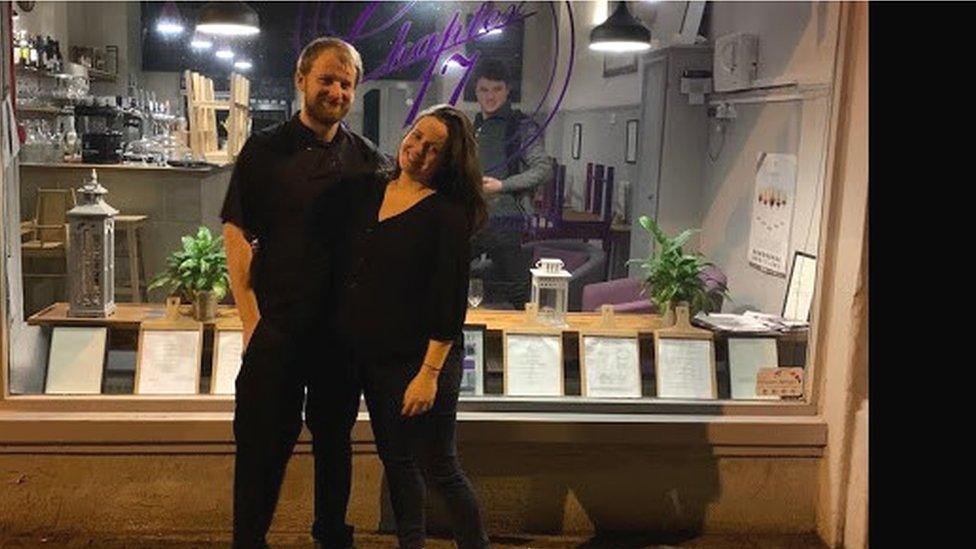
Restaurant owners in Hebden Bridge have raised concerns about policing the new restrictions
Meanwhile, some businesses in affected areas of West Yorkshire have welcomed tighter lockdown restrictions, though they are concerned about how well people will adhere to them.
Beth Paramor-Reeder, who owns Chapter 17 bar and restaurant in Hebden Bridge, said: "Whenever we get a booking we check it's the same household or that they're in a bubble, but obviously you have to take their word for it."
In Bradford, Public Health England figures show the Shearbridge and University area had 32 new cases - the highest in the whole of England - for the week ending 26 July.
Other areas around the city centre also had high case numbers, including Pellon East and Thornbury.
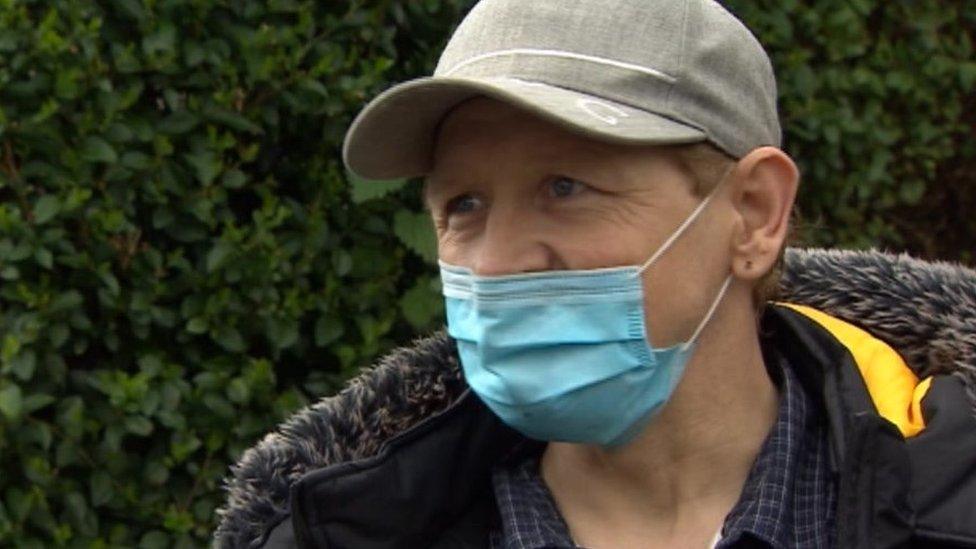
Keith Burke said many people in a part of Bradford where cases are highest did not know what the new rules were
Keith Burke, who lives the Shearbridge and University area, said: "It's scary because unfortunately lot of people aren't taking it seriously.
"A lot of people don't even know we've got restrictions... they're not wearing their masks when they go in the shops."
However, figures also show 70% of areas in Bradford, Calderdale and Kirklees had two or fewer new cases, which has led to criticism about local lockdowns.
Jason McCartney, MP for the Colne Valley, has called for the rules to be relaxed in certain places.
"I've been lobbying very hard indeed for the decision makers, the government in collaboration with local councils, to allow those areas, like my Colne Valley constituency, which has virtually no new cases at all, to be released from these new localised restrictions as we move forward."
In Ilkley - where case numbers are also low - councillor Anne Hawskworth said many residents who contacted her were "bemused" about the rules.
"A lot of residents have been having socially distance gatherings in their gardens but now that has to stop although hoards of people are still allowed to come into the town which they see as a much higher risk," she said.
However, Bradford council leader Susan Hinchcliff, said everyone had to work together to keep the virus at bay.
She said despite the new legislation, "police could not be on every street corner".
- Published4 August 2020
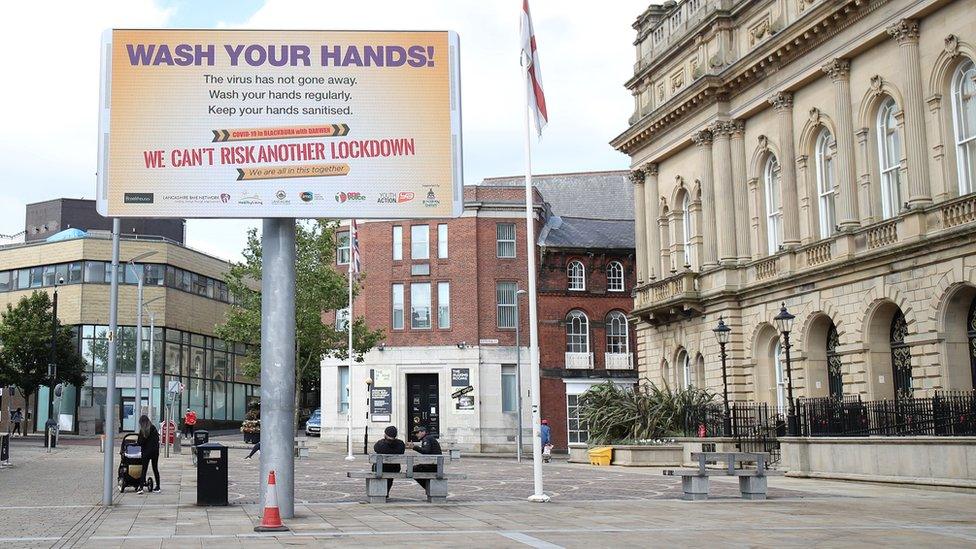
- Published31 July 2020
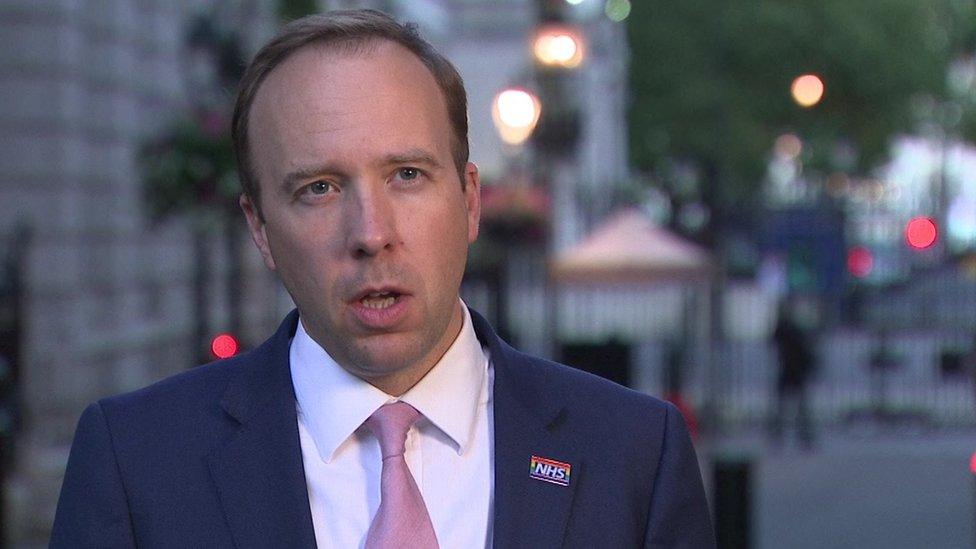
- Published30 July 2020
